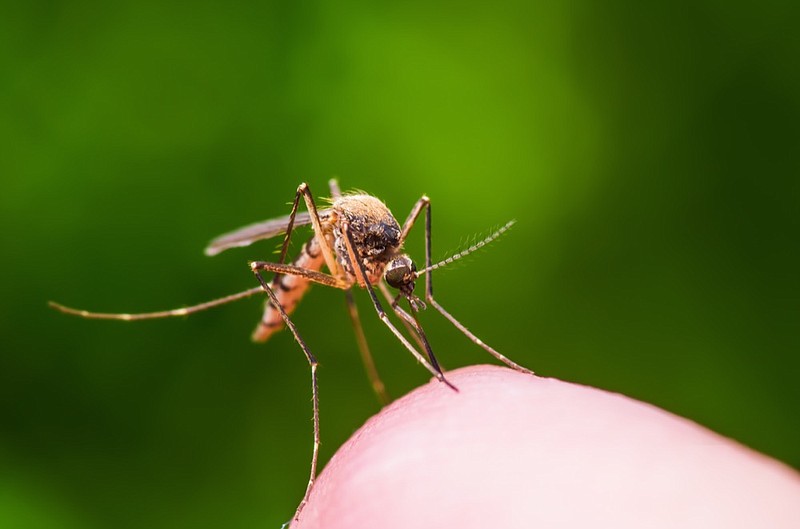West Nile virus has been detected in mosquitoes in Hamilton County, according to local health officials.
The virus is the most common mosquito-borne virus in the United States, according to a news release from the Chattanooga-Hamilton Hamilton County Health Department. Milder symptoms can include fever, headache, body aches, nausea, vomiting and sometimes swollen lymph glands or a skin rash on the chest, stomach and back. Severe symptoms can include coma or paralysis. It's transmitted though the bite of an infected mosquito.
Health tips
Tips from Tennessee and Georgia health officials: Mosquitoes carrying West Nile virus usually bite at dusk and dawn, so avoid or limit outdoor activity at these times. Use insect repellents such as DEET, Picaridin, oil of lemon eucalyptus or IR3535 on your skin, following all label recommendations for use. Pay particular attention to recommendations for use on children, and never apply any of these products around the mouth or eyes at any age. Consult your health care provider if you have questions. Reduce mosquito populations around your home. Mosquitoes can breed in any place that holds standing water, including clogged drains or gutters, watering cans and empty bottles. Use products containing permethrin, a highly effective insecticide, for clothing, shoes, bed nets and camping gear. Permethrin-treated clothing repels and kills ticks, mosquitoes and other pests and retains this effect after repeated laundering. Some commercial products are available pretreated with permethrin. As a caution, however, it is not to be used directly on skin. Wear "long, loose and light" clothing, like long-sleeved shirts and long pants, to help prevent bites through fabric. Tuck your pants into your socks and your shirt into your pants. Light-colored clothes are less attractive to many insects and may allow you to spot them more easily. Make sure doors and windows are in good repair and fit tightly, and fix torn or damaged screens to keep mosquitoes out of the house.
Bonnie Deakins, director of environmental health sciences, said that while West Nile isn't new to the area, it's a reminder that mosquito bites are not harmless.
"About 1 in 5 of those infected will develop a fever and other symptoms, while about 1 in 150 could develop serious illness," she said in a statement Monday.
There is no vaccine to prevent West Nile Virus. The most effective prevention against West Nile Virus or any mosquito-borne disease is by protecting against mosquito bites "from the body outward," the release states. Starting at the skin, use EPA-approved insect repellents, wear clothing that covers skin, use screens on windows and doors, eliminate or reduce standing water around your home where mosquitoes breed and take precautions when traveling overseas.
The health department has been trapping mosquitoes to monitor for other mosquito-borne diseases, as well, including chikungunya, Zika and La Crosse Encephalitis, the release states. Lab testing of the trapped mosquitoes is performed by Tennessee Department of Health laboratories. The trapping program is funded by a grant from the Tennessee Department of Health as part of a statewide monitoring program.
From 2012-2017, seven cases of West Nile Virus were reported to the health department. During the same time, 82 cases were reported across Tennessee.
For more information, visit the Tennessee Department of Health or the CDC, or call the Environmental Health Services division at 423-209-8110.
